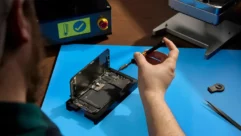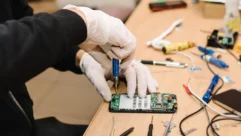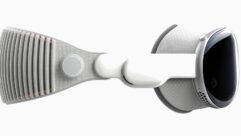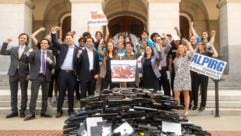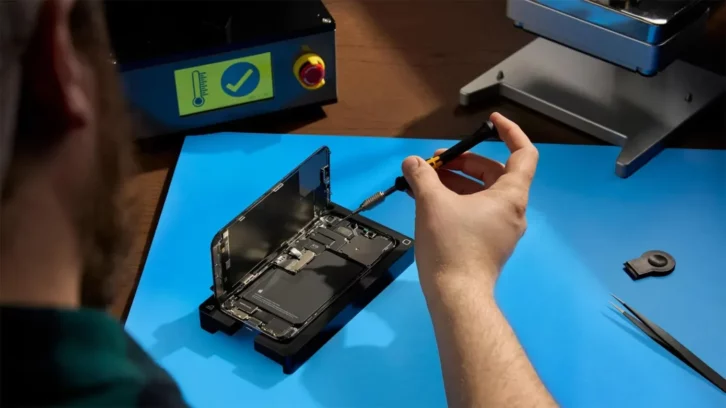
Earlier this year, Apple turned heads by committing to making at-home repair for their devices accessible nationwide. This included giving consumers access to all the parts, tools, and documentation needed to avoid the company’s hefty repair fees.
While celebrated for their decision initially, some repair experts frowned upon some of Apple’s continued practices that seem to be in place to hinder self-repair, notably the parts-matching software baked into most of their devices. In a step towards greater repairability, Apple has revealed that it is making its diagnostics tool available online to consumers. According to the announcement, the tool gives consumers “the same ability as Apple Authorized Service Providers and Independent Repair Providers to test devices for optimal part functionality and performance, as well as identify which parts may need repair.”
Though it might be a step in the right direction, some experts insist that access to the new tool does nothing but put a spotlight on inherent issues with Apple’s repair practices. In a statement to Ars Technica, iFixit CEO Kyle Wiens said, “Apple still has a long way to go to create a robust repair ecosystem, including ending their repair-hostile parts pairing system. This software tool clearly illuminates the problems we’ve identified with parts pairing, where the diagnostic tool fails to recognize the ambient light sensor in a new part we’ve installed.”
The following was originally published October 26, 2023:
During Tuesday’s White House event discussing right to repair legislation, Apple announced that it would be stepping up its repairability efforts, including making all repair parts, tools, and documentation available to consumers. California’s recent passing of its Right to Repair Act requires these efforts be made by Apple in the state, but the company’s announcement means that it will be expanding these efforts nationwide.
The event was part of the Biden administration’s stated effort to fight back against what they call “anti-consumer practices” that artificially raise prices of products, including the “junk fees” that they consider hurdles for consumers to repair their devices. The White House foresees intrinsic economic value in reducing these practices across industries.
“The basic right to get a product repaired can also save farmers thousands of dollars when their tractor breaks down, and can create opportunities for small independent repair shops to thrive,” said Lael Brainard, director of the National Economic Counsel. “From smartphones to wheelchairs to cars to farm equipment, too often manufacturers make it difficult to access spare parts, manuals and tools necessary to make fixes.”
iFixit chops iPhone’s repairability score, scolds Apple for reneging on right-to-repair efforts
Apple Vice President Brian Naumann commented on the company’s commitment to expand repair support nationwide, saying, “We intend to honor California’s new repair provisions across the United States. Apple also believes that consumers and businesses would benefit from a national law that balances repairability with product integrity, usability and physical safety.”
Naumann continued, outlining Apple’s approach to supporting consumers while also complying with different state mandates on repair accessibility:
“We believe that a uniform federal repair law should do the following: Maintain privacy, data and device security features which help to thwart theft; Ensure transparency for consumers about the type of parts used in a repair; Apply prospectively, to allow manufacturers to focus on building new products that can comply with the proposals; And finally, create a strong national standard that benefits consumers across the US and reduces the confusion created by potentially conflicting state approaches.”


